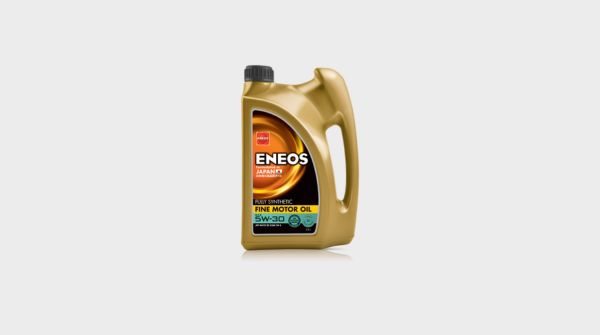Whether it’s the soft purr of a pet or the engine, certain sounds are meant to be soothing until they suddenly aren’t. While a pet’s playful noise might still bring a smile, the rattling, ticking, or knocking from your car’s engine is anything but pleasant.
While you may rush to blame the mechanical fault, the correct diagnosis and action are way more important. Often, the culprit could be the engine oil rather than the others. Yes, beyond lubrication, the oil choice can influence how your engine sounds every day. Wondering what you don’t know yet about your automotive love? Let’s explore this hidden connection between the engine’s voice and the oil flowing within.
What Causes Engine Noise?
An engine is a complex assembly of moving parts operating at high speeds and under extreme conditions. Engine noise is the natural result of these mechanical interactions. But sometimes, it can hint at underlying issues. Here are the common reasons that contribute to engine noise:
- The metal-to-metal contact leads to engine noise in the absence of proper lubrication. It makes engine parts grind against each other, leading to tapping, knocking, or ticking sounds.
- The timing belt, or cambelt, responsible for the timely movement of the valves, can become worn out. The inability to function properly will lead to a knocking sound inside the vehicle.
- The valve lifter is another component that deals with the opening and closing of the valves. Dirt accumulation can lead to a persistent knocking noise on every engine start, while the wrong oil choice can lead to clogging.
- Low oil pressure, which occurs in the absence of a sufficient quantity of oil, can lead to knocking sounds and damage the engine.
Role of Engine Oil
Engine oil is a vital component that lubricates the engine parts. It serves multiple functions and has a great impact on the components of the vehicle. Here is what it does:
- It lubricates and reduces friction and the generated heat, thus preventing wear and tear of the engine.
- It controls the engine’s temperature by distributing the heat concentrated at the engine parts.
- It protects the engine from rusting and corrosion.
- It comprises additives that prevent foam and sludge formation, which would impact the engine efficiency.
When Are Oil and Engine Noise Related?
The oil circulates across the engine, lubricating it effectively. The absence may lead to metal-to-metal contact, which not only generates heat and friction but also causes wear and tear. This metal interaction results in a knocking, grinding, or ticking noise when the engine is running. These sounds indicate the requirement for an oil change. Here is more information about the same:
- Knocking sound: The sound occurs in a scenario of improper lubrication by the engine. It may have happened due to poor viscosity or cleanliness level. The low viscosity makes the oil too thin to function properly, and the dirty oil also hinders the engine parts’ movement. Hence, the change of the right oil is necessary. Using a fully synthetic oilcan offer better protection against friction and reduce such knocking sounds.
- Ticking sound: The ticking sound occurs when the oil does not circulate properly. This may further result from dirty oil, which would hinder lubrication and also result in heat buildup. Here, an oil change can help start the vehicle.
- Rumbling sound: It indicates that the oil is dirty and very old, which hinders its lubrication properties. New oil would restore the proper functionality of the engine. Choosing a 5W-30 fully synthetic oilhelps maintain optimal engine performance and reduce unwanted noise.
Tips for Quiet Engine Performance
The quiet engine is an essential requirement that helps drive smoothly, focus on the journey, and does not impact the mood. Here are certain ways that can contribute to quiet engine performance:
- Follow the regular maintenance schedule: a routine servicing at recommended intervals helps identify early signs of engine wear or damage. It can prevent further issues while being pocket-friendly as well.
- Perform timely oil changes: always change the engine oil when necessary. Ensure adherence to the right quality of oil specific to your engine requirements to reduce friction and noise.
- Check oil levels: remain updated with oil levels, as poor levels may also result in increased engine noise.
- Keep the cooling system in check: an overheated engine can cause knocking sounds. Ensure the coolant level is adequate and the cooling system is functioning properly.
- Maintain engine belts and chains: worn-out timing belts or chains can create knocking or slapping sounds. Regular inspection and timely replacement help avoid these noises.
Conclusion
A noisy engine isn’t always a warning of expensive repairs. It might be the engine’s way of asking for better care and the right oil. By paying attention to quality, change intervals, and proper maintenance, you can enjoy smoother rides while preserving your car’s health in the long run. After all, a well-oiled engine isn’t just quieter; it’s happier, healthier, and lasts longer.


